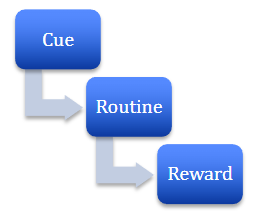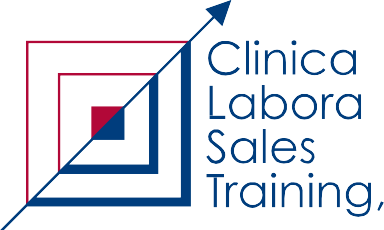Habits: Understanding Their Role in the Sales Process
SALES, DIAGNOSTIC RECRUITER, LIFE SCIENCE RECRUITING
By Peter Francis
April 2024
Those who sell laboratory services should become familiar with a part of our anatomy—a golf ball-
size tissue lump in the center of our brain filled with multiple nuclei. It’s a plural medical word
called the basal ganglia. For many years, scientists didn’t understand what this “thing” did, except
for suspicions it played a role in certain diseases such as Parkinson’s. As it turns out, in the early
1990s, researchers at MIT discovered the basal ganglia are integral to how we develop habits.
Habits? What does that have to do with selling a laboratory service?
Of the countless number of clients and prospects I have visited over four decades, several things
have been consistent when it comes to conversations. One of the most conventional from a
medical assistant is a statement like this: “It’s very easy to use XYZ Lab; everything is automatic. I
know what to do to get the specimens and requisitions prepared by a certain time in the day.”
From the perspective of the client’s lab field rep, they love hearing this because they feel, at least
on one level, the business relationship remains firm and copacetic.
What most don’t understand—from a scientific standpoint—is the basal ganglia have unleashed
their prodigious powers. This multi-component lump makes it easy for people to store habits. Of
course, there are hundreds of routines we rely on every day, some of which are very simple
(washing our hair, brushing our teeth) and others more involved (driving a car). You can’t debate
the fact we humans are inherently lazy, and the brain constantly seeks ways to save effort by
avoiding decision-making. So, unless you deliberately wrestle with a habit—and find a new
routine—the pattern will unfold automatically.
Three Step Process
In Charles Duhigg’s book, “Habits,” he writes about those MIT researchers and how they discovered
a simple neurological loop at the core of every habit that consists of three steps. Step #1 is the cue.
In the case of laboratory testing, the cue equates to the provider wanting a test result. Step #2
pertains to the routine, such as creating a test requisition, obtaining/preparing the specimen, and
ensuring it gets to the lab. Step #3 is the reward—receiving a quality result in a timely fashion. This
Routine and Reward process becomes easily programmed and develops into the status quo. As a
side point, it’s important to remember—presuming the client stays satisfied with their lab—the
status quo is the most formidable competitor for any sales rep. Marketers are constantly battling
this, because human bias begs us to avoid changing habits when things work just fine. But once you
understand how habits evolve via a loop system (cue-routine-reward), a salesperson can “fiddle”
with the Routine and Reward gears. In other words, explain (better yet, show) the differences your
lab offers in contrast with the current status quo.

Understanding how the cue works remains straightforward when it comes to ordering lab tests.
However, for the competing sales rep, it’s possible his lab has differences in the Routine and
Reward, leading to a significant opportunity within the sales process. Asking questions surrounding
these two umbrella headers makes sense.
I find it uncommon, however, for a rep to inquire what occurs after the doctor generates a test
request (although many clients could follow a similar process, it’s vital not to make assumptions).
Your lab may have distinctive options contained within the Routine making it faster and easier for
the client—and even the patient. The word convenience folds under the Routine heading. The rep
needs to know the answer to, “What does my lab do that’s more convenient vs. the incumbent
lab?” To get your ideas flowing, ponder these suggestions: collection supplies, local drawing
centers, EMR integration, on-line requisitions with ICD-10 coverage assessment, lab location,
courier pick-up time, billing, barcode printer, client and patient education, customer service
timeliness, client-specific data reports, patient lab portal.....you get the idea.
The Reward may contain some portions from above, but it primarily targets qualities directed at
the clinician: (1) state-of-the-art methodology, (2) test algorithms, (3) turnaround time, (4)
interpretive result comments, (5) esoteric risk assays, (6) unique disease panels, (7) timely
professional consult support, (8) relationship with a lab employee, (9) report format, etc. It takes
diligence to fully understand one’s own lab operations, services, and reporting vs. the competition,
but this is what separates the winners into a distinct category.
Are Labs a Commodity?
From a general perspective, many clients have quotidian opinions when it comes to labs—lab
services are fundamentally all the same. Right? Uh-uh-uh....No. Unfortunately for some
salespeople, it’s commonplace for them to also have an equality feeling (admittedly as I first did),
and their sales presentation devolves into a me-too and lackluster scenario. When prospects
express frustration with some facet of their lab, it’s like hitting a gold mine for a competing
marketer, and he/she employs the standard Solution Selling technique. However, when it comes to
satisfied clients (which most are), the rep has binary options. One translates to stopping in
occasionally to check if the incumbent lab has made egregious mistakes that trigger a tipping point
to consider an alternative vendor. In this setting, the field person plays a waiting game—an event
brimming with happenstance and fortuitous luck. May the force be with you.
The second alternative is for a sales rep to make a visit with a valid reason the client would
appreciate (note the emphasis). Sales winners use educational handouts (clinical abstracts,
government health website info, specific test descriptions, etc.) to increase their credibility and
speak with an influential person. Once the rep briefly reviews the material, he/she can bridge the
conversation and ask several lab background questions. One positive-sounding query is, “What are
a few things you like about your lab?” A typical response involves several ordinary items: good
turnaround time, quality reports, dependable courier. The reason this vanilla response is notable is
because it reveals the de facto Rewards as seen by this individual. If someone told me those
conventional items, my next statement would be, “All labs need to afford those services, and mine
does them very well as evidenced by the number of satisfied clients we have. However, there are
other aspects we provide that separate us from our competitors.” This is where I would ask
questions associated with the segments relating to my lab’s Routines and Rewards.
Summary
So—the ol’ basal ganglia. It’s our beloved “lump” for our satisfied clients. But it plays a devilish
protagonist role when we’re trying to commandeer business from a competitor.
I think everyone agrees we’re all creatures of habit; but, having said that, the primary part of any
sales situation entails persuading someone to change the status quo—an operose job. When it
comes to selling reference lab services, habits appear insuperable unless, for the most part, four
things occur: (1) there’s been significant deterioration in some aspect of the lab service, (2) a
hospital or corporate owner has mandated a change to a specified lab, (3) a personal relationship
exists, or (4) you present compelling points the customer likes (i.e., you outsell the competition). To
this last point, I suggest using questions that coalesce with your lab’s Routine (i.e., convenience
factors) and Reward elements. The client’s answers will help extend a more thorough grasp of how
your lab positions itself against the competition and, very significantly, allow for differentiation.
I would be remiss if I didn’t mention that what you want to see happen is you, the field
rep, become part of the client’s Reward. After all, in most business-to-business sales situations—
and not to be overlooked—the client’s first decision rests with the field person.
Peter Francis is president of Clinical Laboratory Sales Training, LLC, a unique training and
development company dedicated to helping laboratories increase their revenues and reputation through prepared, professional, and productive representatives. He is the author of over forty-five articles about laboratory sales. Visit the company’s website at www.clinlabsales.com for a complete listing of services.




No Comments